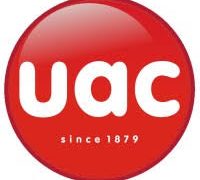Nigeria currently spends approximately N1 billion each month on power supply for its major international airports in Lagos and Abuja. This staggering cost has raised concerns regarding the sustainability and efficiency of the country’s energy consumption in the aviation sector.
Festus Keyamo The honorable minister of Aviation, have indicated that discussions are underway to transition the airports to a purely solar energy model. This shift is expected to significantly reduce recurrent costs associated with electricity supply, potentially alleviating the financial burden on the national budget.
Advocates for this initiative argue that moving to solar energy aligns with global trends towards renewable resources and could enhance Nigeria’s energy security. By harnessing solar power, the airports could not only cut operational costs but also contribute to a greener environment.
The proposal is part of broader efforts by the government to improve infrastructure and reduce dependency on traditional power sources, which have often been unreliable and expensive.
As plans develop, stakeholders will be closely monitoring the feasibility and implementation of solar energy at Nigeria’s key airports, hoping for a sustainable solution that benefits both the economy and the environment.

























































